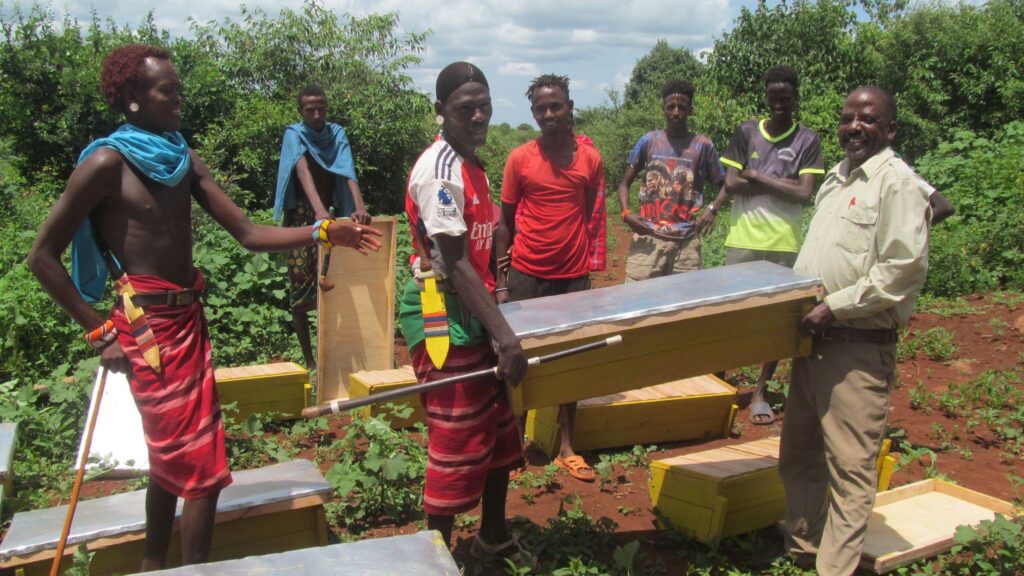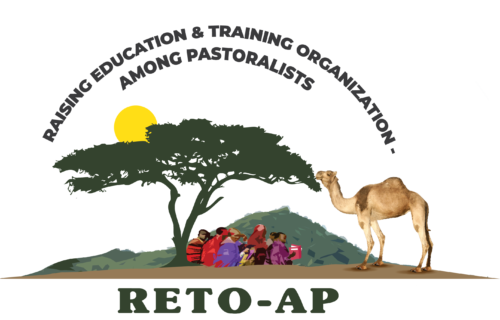
The peacebuilding initiative through alternative livelihoods among young warrior men in the Badasa–Songa–Ilpus area, located along the Marsabit Forest, was born out of a deep need to break cycles of violence and create space for healing, dignity, and transformation. This region, historically affected by resource-based conflict, ethnic tension, and economic exclusion, had long seen young morans (warriors) caught in the middle of fighting that tore communities apart.
Three years ago, RETO-AP, in close partnership with local community Peace elders, initiated a bold and holistic response. These leaders recognised that meaningful peace could not be achieved without addressing the root causes of conflict, especially the disempowerment and marginalisation of young men who had lost their sense of identity and purpose.
During early peace dialogues, many of these young warriors voiced their frustrations and fears, saying:
“The only work we know is looking after livestock. In our culture, if you don’t have any of this livestock, you are not a man. You cannot provide for a family or even start one.”
This painful truth revealed the deep intersection between culture, economy, and identity. RETO-AP understood that true transformation could not come through charity alone; it had to confront the structural forces and cultural wounds that kept these youth trapped.
With this vision, the initiative introduced alternative livelihood options tailored to local realities, including apiculture (beekeeping), small-scale agribusiness, and technical training. These opportunities did not just create income, they restored dignity and gave morans a path to manhood and responsibility that aligned with peace rather than violence.
Through continuous dialogue, mentorship from elders, and RETO-AP’s facilitation, former rivals became collaborators, and conflict zones began to turn into zones of hope. The forests that once symbolised danger now symbolise possibility.
Today, many of these transformed warriors are peace ambassadors, entrepreneurs, and mentors to others. Their journey is a testament to what is possible when compassion is fused with justice, and when communities invest not just in relief but in restoring identity, dignity, and peace.

No responses yet